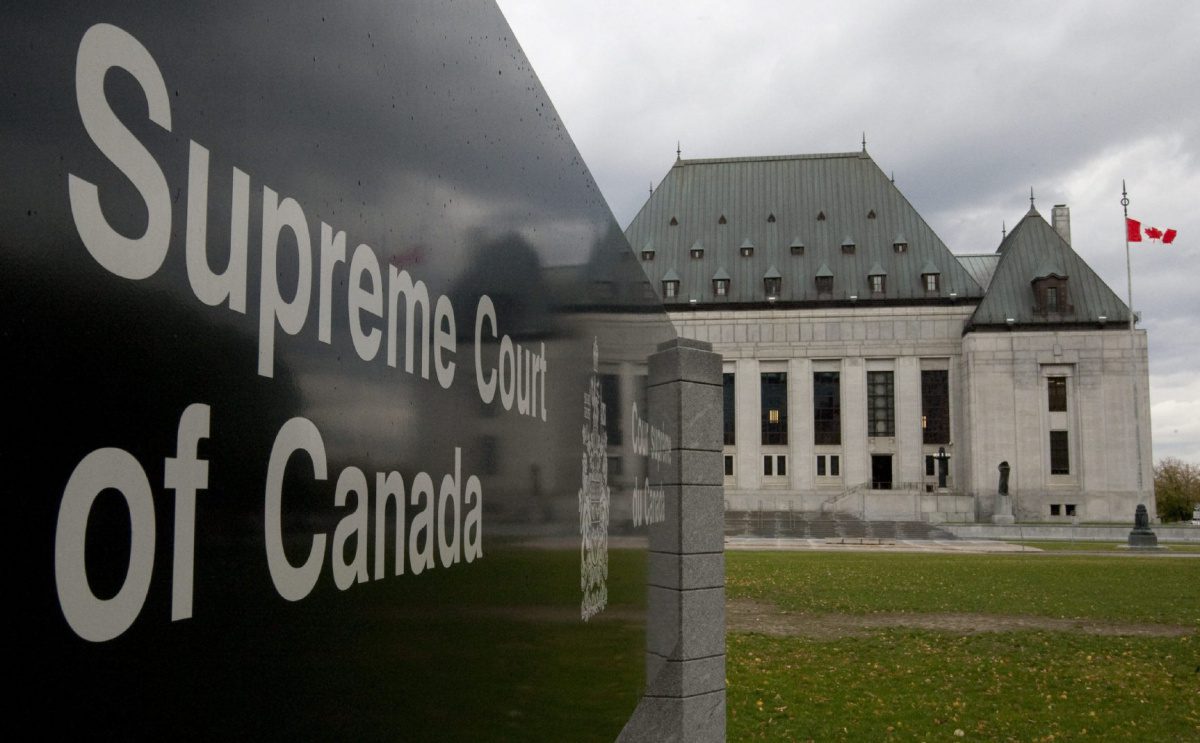There has never been a non-white judge on the Supreme Court of Canada. In a country with a non-white population of at least 20%, that's a bizarre and unjust status quo, and one that reflects poorly on our country's meritocracy generally, and the supposed progressivism of Justin Trudeau specifically.
The Prime Minister has loudly and often proclaimed a desire to use his extensive powers of appointment to promote people who "look like Canada." Translated from Liberalese, this means "people who look like Canada's non-white minority," which is fine. For a democratic government to be considered legitimate its institutions must adequately represent the population. Institutions that are consistently staffed by only one kind of people, by contrast, will justly arise suspicions of an out-of-touch elite.
This week, Trudeau had an opportunity to fill a vacancy on our Supreme Court with a qualified, non-white judge or lawyer, of which this country surely possesses an ample bounty — even in the Maritimes, where tradition dictates the pick had to be pulled. It had been leaked that Trudeau specifically intended to appoint a woman of colour, just to really demonstrate his because-it's-2016 chops.
But then he turned around and appointed yet another white guy, Justice Malcolm Rowe of Newfoundland. It was a useful gesture in exposing the limited interest Canada's progressive ruling class truly holds for consequential diversity.
Justice Rowe may be white, but his selection broadcasts the power of an elite in this country whose privilege transcends race (though it certainly correlates strongly with it): French-speakers. Trudeau, after all, made it clear when he first revealed his criteria for Supreme Court picks that fluency in French was non-negotiable. This was hardly surprising, given parties of the Canadian left long ago chose to elevate the principle of hiring only impeccably bilingual individuals to positions of importance a foundational tenant of their orthodoxy. In 2013 for instance, the NDP proposed, and the Liberals enthusiastically supported, a new law to limit all "officer of parliament" jobs to those with fluency in both official languages.
Allegiance to this shibboleth is one of the few things Prime Minister Trudeau seems to believe deep in his core, as his political worldview, revealed in his memoirs and early speeches, is inseparably bound to his father's notion that the central purpose of Canadian politics is to salve tensions between Quebec and English Canada. This narrow interpretation has arguably never been accurate, and certainly seems painfully dated today, yet it remains the truth to which the Prime Minister (and most other leaders of Canadian liberalism) believe all other priorities must be subordinate. When push comes to shove, entrenching the strength of Canada's already all-powerful bilingual ruling caste drawn from the narrowest slice of Canadian society (only 2,480 Newfoundlanders claim to speak French at home) takes precedence over everything else progressives profess to stand for — multiculturalism, feminism, etc.
It is difficult for conservatives to argue in favor of diversity these days. The rise of overbearing social justice warriors on social media, who find discriminatory "microaggressions" everywhere and their equally aggressive "alt-right" critics have heralded a mindless hardening of this debate, and turned it into much more of a zero-sum game than it deserves to be. I suppose next you'll be demanding he appoint a black lesbian in a wheelchair, bellowed one of my Twitter followers.
But there's nothing leftist about expressing concern when the leadership of our institutions do not reflect the diversity of our society. Discriminatory institutions, after all, rarely just discriminate on one level. With Justice Rowe, we can clearly see that racial discrimination is a proxy for linguistic discrimination, which is bound up in discrimination of class, politics, and ideology. It would be difficult for any conservative to argue, in this era of endless unanimous rulings, that our Supreme Court could not stand to broaden its perspectives a bit, yet this will only happen when its present institutional barriers to membership are lowered — for everyone.
An aside, in closing: several months ago I opened a column on some other absurdity of Canadian bilingualism with an observation that Israeli and American military engineers were making great strides in developing earbud-sized instant translators. Well, progress appears to be quite rapid indeed. New York-based studio Waverly Labs recently raised more than $3 million on Indigogo for a contraption they call Pilot, "the world's first smart earpiece which translates between users speaking different languages."
Progressive Canada's elitism may not survive the march of progress.
Written by J.J McCullough






